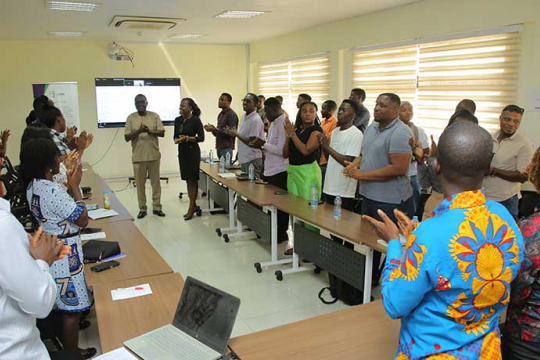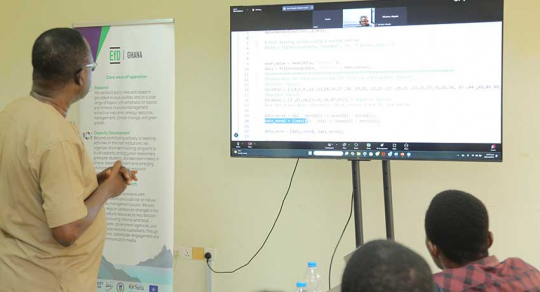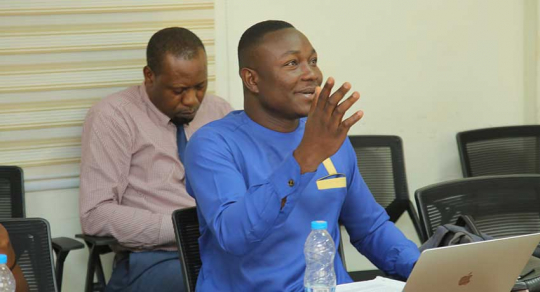Environmental indices are essential tools for assessing ecological health and guiding policy decisions, particularly as climate challenges intensify. Furthering its commitment to advancing graduate training, EfD Ghana organized a training program, Developing Environmental Indices, using the Ghana Climate Investment Index as a practical case study.
The participants were particularly inspired by the practical session delivered by doctoral student Jacob Abeney, who has worked on several EfD Ghana projects under Research Fellow Daniel Twerefou’s mentorship.
Indices can help policymaking
The training delivered virtually by Jacob Abeney at the Umeå School of Business, Economics, and Statistics in Sweden drew on his experience developing environmental indices for Ghana’s Environmental Protection Agency (EPA), a project led by Daniel Twerefou. Jacob Abeney guided participants through methodological approaches, including Principal Component Analysis (PCA) and the entropy method, illustrating how researchers can create objective indices that effectively capture environmental dynamics while adhering to scientific standards.
"Many indices are being constructed to help policymakers know what they are doing and to facilitate proper monitoring," said Daniel Twerefou.
"Sharing our knowledge in this area allows students to gain a deeper understanding of what indices are and draw associations with the Ghana Climate Investment Index, allowing theory to be influenced by practice and data," he added.
An alumnus of the University of Ghana, where he completed his undergraduate and MPhil studies, Jacob Abeney’s involvement exemplified the power of mentorship in advancing research excellence. Reflecting on his journey from mentee to trainer.
“Having the opportunity to work with my mentor on real-world projects has been invaluable. Being part of this training and sharing what I’ve learned is a way of contributing to the growth of others in the field,” he said.
The program left a profound impression on participants, who appreciated the focus on connecting academic concepts with practical applications.
“This training bridged the gap between classroom theory and real-world practice. It’s empowering to see how the indices we learn about can drive accountability and informed decision-making,” said a graduate student from the University of Ghana.
Another participant, a doctoral student at ISSER, echoed this sentiment, emphasizing how the skills gained could be applied to environmental resource management and policy implementation.
The workshop was held on November 28 at the ISSER Conference Center, University of Ghana.
By Vicentia Quartey


